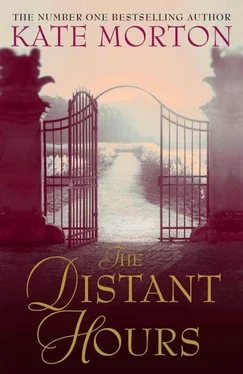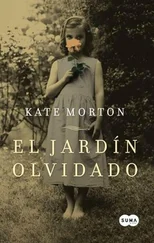Since his discharge, though, he’d been drifting from this spare room to that, waiting for his leg to heal and his unit to recall him. There were places empty all over London so it was never hard to find a new abode. It seemed that everything had been shuffled by the war – people, possessions, affections – and there was no longer one right way of doing things. This particular flat, this plain room that he would remember specially to his dying day, that was soon to become the repository for his life’s best and brightest memories, belonged to a friend with whom he’d studied at teacher training college, in a different version of his life, long ago.
It was early still, but Tom had already walked to Primrose Hill and back. He didn’t sleep late any more, nor deeply. Not after the months in France, living by his wits, in retreat. He woke with the birds, the sparrows in particular, a family of whom had taken up digs on his sill. It had been a mistake, perhaps, to feed them, but the bread had been mouldy to begin with and the fellow down at the Salvage Department fierce that it shouldn’t be thrown away. It was the heat of the room and the steam from the boiler turning Tom’s bread to mould. He kept the window open but the day’s sun accumulated in the flats beneath, spread up the staircase and shrugged through the floorboards, before hitting his ceiling and stretching out with proprietorial ease to shake hands with the steam. It had been just as well to accept it: the mould was his, as were the birds. He woke early, he fed them, he walked.
The doctors had said that walking was the best thing for his leg, but Tom would’ve done so regardless. There was something restless living inside him now, something he’d gained in France that needed to be exorcised daily. Each footfall on the pavement helped a little, and he was glad for the release, even though he knew it to be temporary. That morning, as he’d stood at the top of Primrose Hill and watched the dawn roll up its sleeves, he’d picked out the Zoo and the BBC and, in the distance, the dome of St Paul’s, rising clear of its blitzed surroundings. Tom had been in hospital during the worst of the raids and Matron had arrived on the thirtieth of December, The Times in hand (he’d been allowed the newspaper by then). She’d stood beside the bed, po-faced but not unkind, as he began to read, and before he’d finished the headline, she’d declared it an act of God. Although Tom had agreed that the dome’s survival was a wonder, he’d thought it had a bit more to do with luck than Lord. He had trouble with God, with the notion that a divine being might save a building when all of England was bleeding to death. To Matron, however, he’d nodded agreement: blasphemy would’ve been just the sort of thing to get her whispering to the doctor about worrying states of mind.
A mirror had been propped on the ledge of the narrow casement window and Tom, dressed in his undershirt and trousers, leaned towards it, rolling the stub of shaving soap across his cheeks. He watched dispassionately the mottled reflection in the stippled glass, the young man cocking his head so that milky sunlight lay across his cheek, running the razor carefully along his jaw, stroke by stroke, flinching as he negotiated the territory around his earlobe. The fellow in the mirror rinsed the razor in the shallow water, shook it a little, and started on the other side, just as a man might when he was tidying himself up to visit his mother on her birthday.
Tom caught himself drifting and sighed. He laid the razor gently on the sill and rested both hands on the outer curve of the basin. Screwed his eyes shut, beginning the familiar count to ten. This dislocation had been happening a lot lately, since he returned from France but even more so after leaving the hospital. It was as if he were outside himself, watching, unable quite to believe that the young man in the mirror with the amiable face, the mild expression, the day stretching ahead, could possibly be him. That the experiences of the past eighteen months, the sights and sounds – that child, dear God, lying dead, alone, on the road in France – could possibly live behind that still-smooth face.
You are Thomas Cavill , he told himself firmly when he’d reached ten; you are twenty-five years old, you are a soldier. Today is your mother’s birthday and you are going to visit her for lunch . His sisters would be there, the eldest with her baby son, Thomas – named for him – and his brother Joey, too; though not Theo, who’d been sent up north with his regiment for training and wrote cheery letters home about butter and cream and a girl named Kitty. They would be their usual rowdy selves, the wartime version of themselves, at any rate: never questioning, hardly complaining, and then only ever in a jocular fashion about the difficulties of obtaining eggs and sugar. Never doubting that Britain could take it. That they could take it. Tom could vaguely remember feeling the same way himself.
Juniper took out the piece of paper and checked the address once more. Turned it sideways, twisted her head, then cursed herself for her appalling handwriting. Too quick, too careless, too eager always to move on to the next idea. She looked up at the narrow house, spotted the number on the black front door. Twenty-six. This was it. It had to be.
It was. Juniper decisively shoved the paper in her pocket. Number and street name aside, she recognized this house from Merry’s stories as vividly as she would Northanger Abbey or Wuthering Heights. With a skip in her step, she climbed the concrete stairs and knocked on the door.
She had been in London for exactly two days and still she couldn’t quite believe it. She felt like a fictional character who’d escaped the book in which her creator had carefully and kindly trapped her; taken a pair of scissors to her outline and leaped, free, into the unfamiliar pages of a story with far more dirt and noise and rhythm. A story she adored already: the shuffling, the mess, the disorder, the things and people she didn’t understand. It was exhilarating, just as she’d always known it would be.
The door opened and a scowling face caught her off guard, a person younger than she was but also somehow older. ‘What do you want?’
‘I’ve come to see Meredith Baker.’ Juniper’s voice was strange to her own ears, here in this other story. An image came to her of Percy, who always knew precisely how to behave out in the world, but it merged with another more recent memory – Percy, red-faced and angry after a meeting with Daddy’s solicitor – and Juniper let it turn to sand and scatter to the ground.
The girl – with those pursed and grudging lips she could only be Rita – looked Juniper up and down before arriving at an expression of haughty suspicion and, oddly, for they had never met before, strong dislike. ‘Meredith!’ she called finally from the side of her mouth. ‘Get yourself out here now.’
Juniper and Rita observed one another as they waited, neither speaking, and a host of words appeared in Juniper’s mind, knitting themselves together to form the beginning of a description she would later write back to her sisters. Then Meredith appeared with a clatter, spectacles on her nose and a tea cloth in her hand, and the words seemed unimportant.
Merry was the first friend Juniper had made and the first she’d had occasion to miss, so the immense weight of her friend’s absence had been totally unexpected. When Merry’s father had arrived without notice at the castle in March, insisting that his daughter return home this time, the two girls had clung to one another and Juniper had whispered in Merry’s ear, ‘I’m coming to London. I’ll see you soon.’ Merry had cried but Juniper hadn’t, not then; she’d waved and returned to the attic roof and tried to remember how it was to be alone. Her whole life had been spent that way – though in the silences left by Merry’s departure, there’d been something new. A clock was softly ticking, counting down the seconds to a fate that Juniper was stubbornly determined to outrun.
Читать дальше












